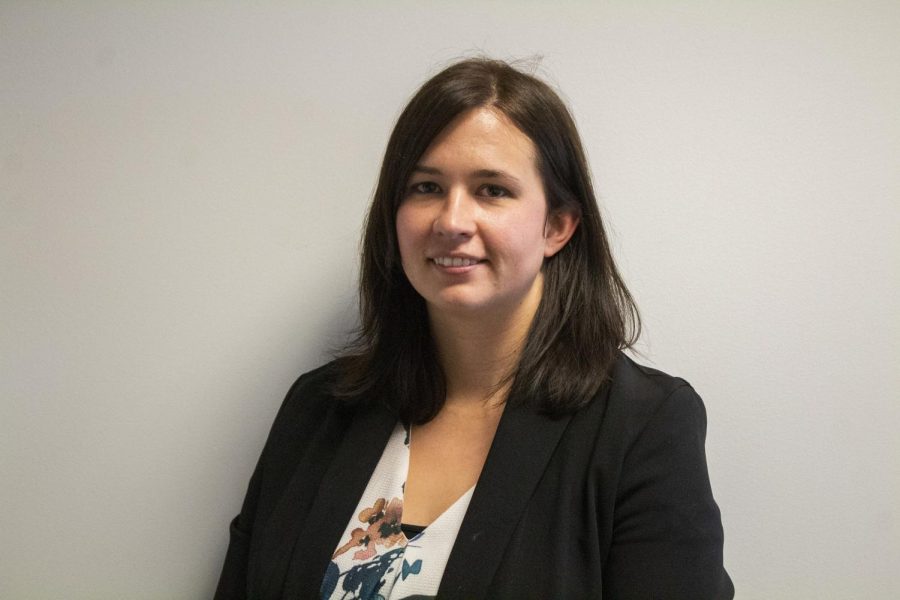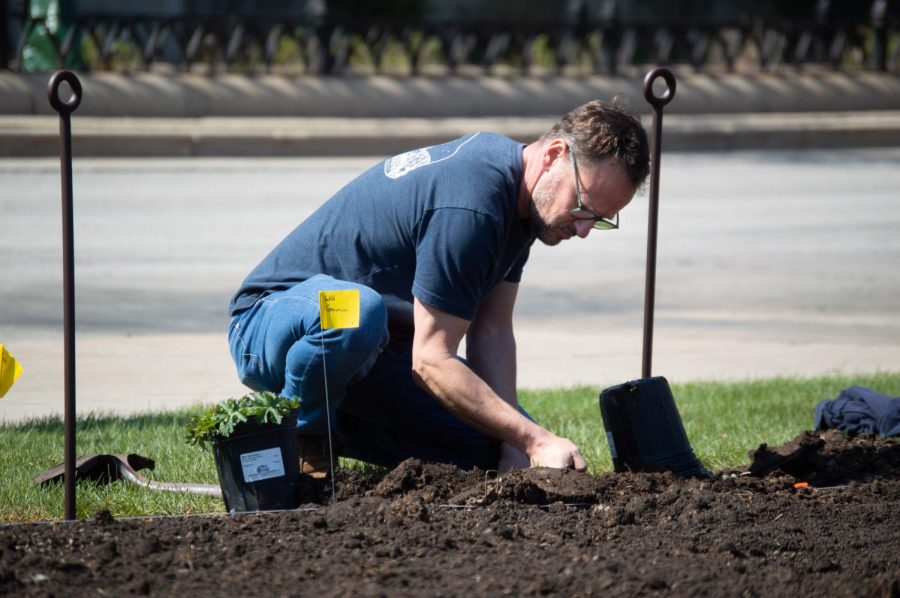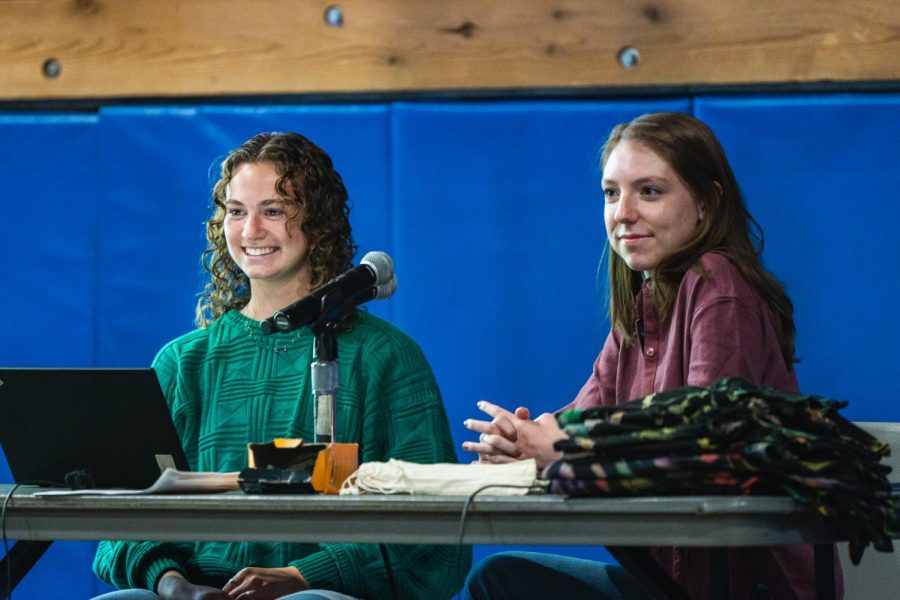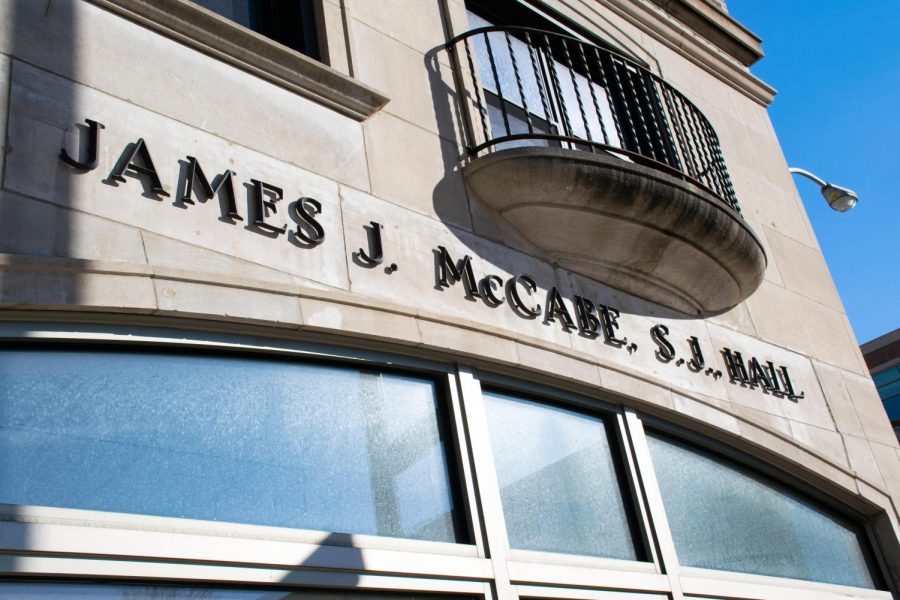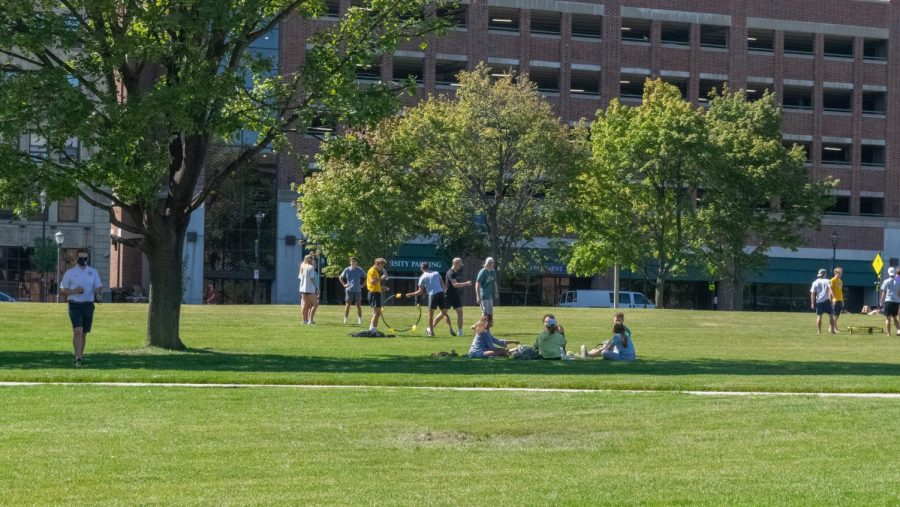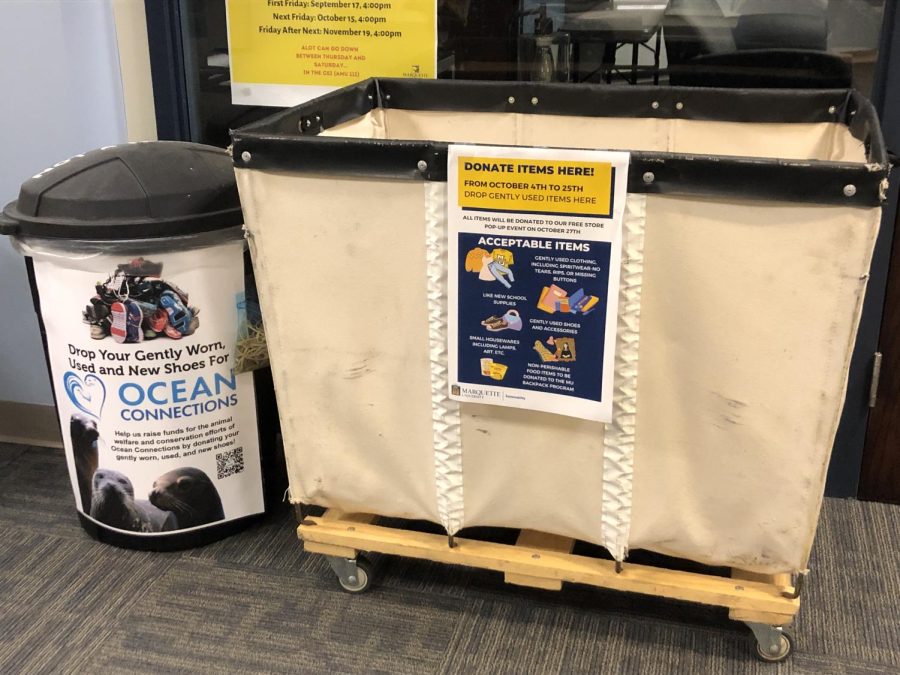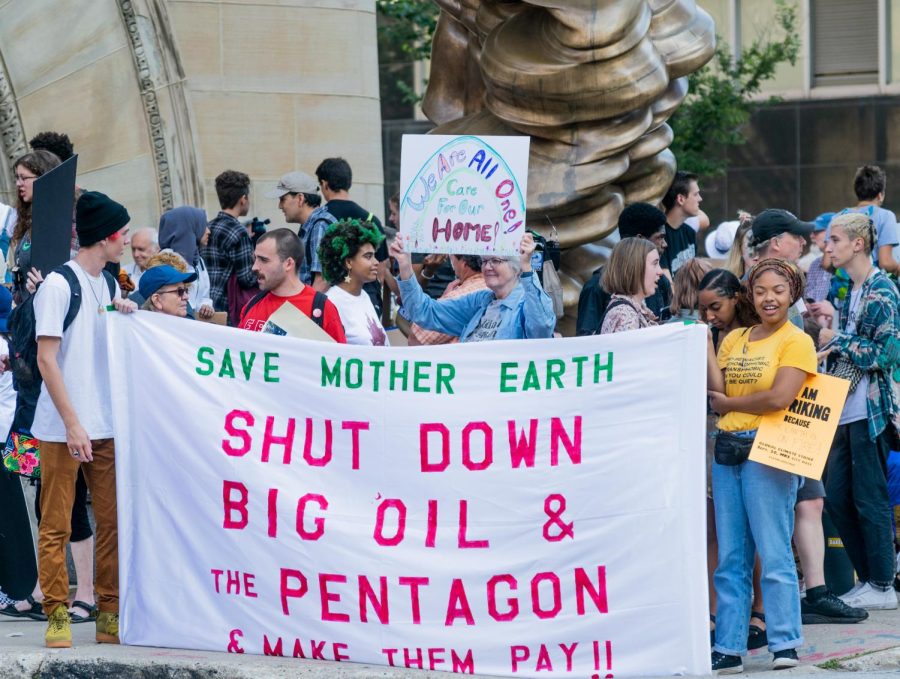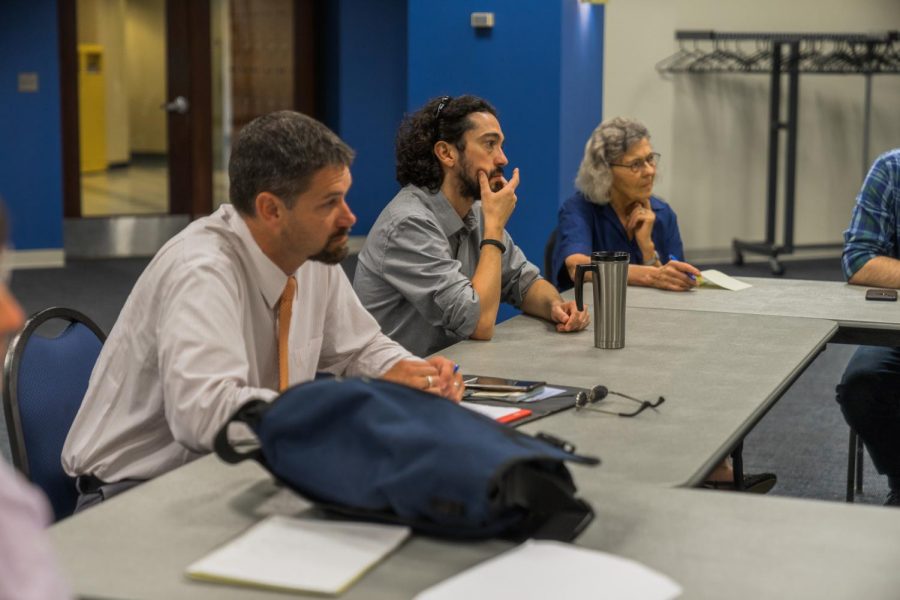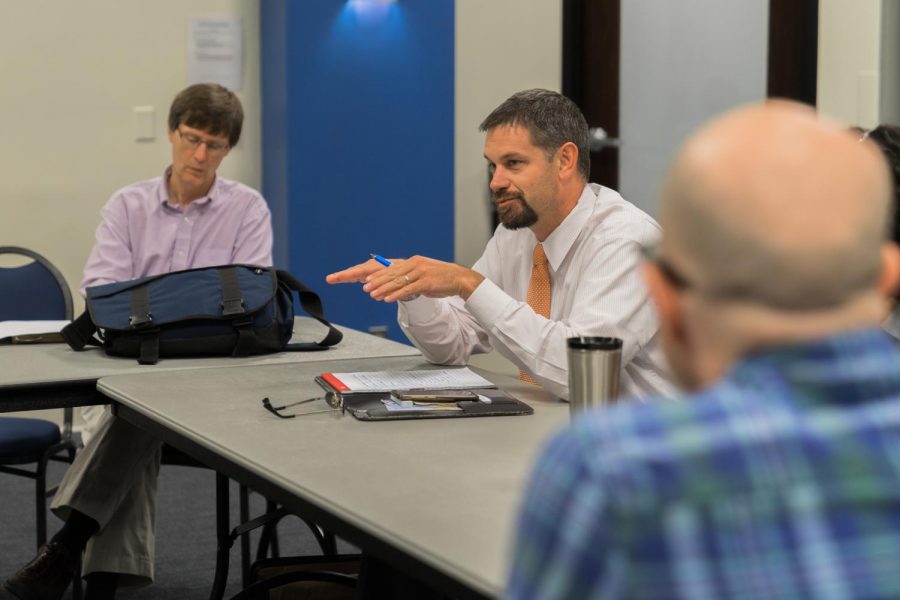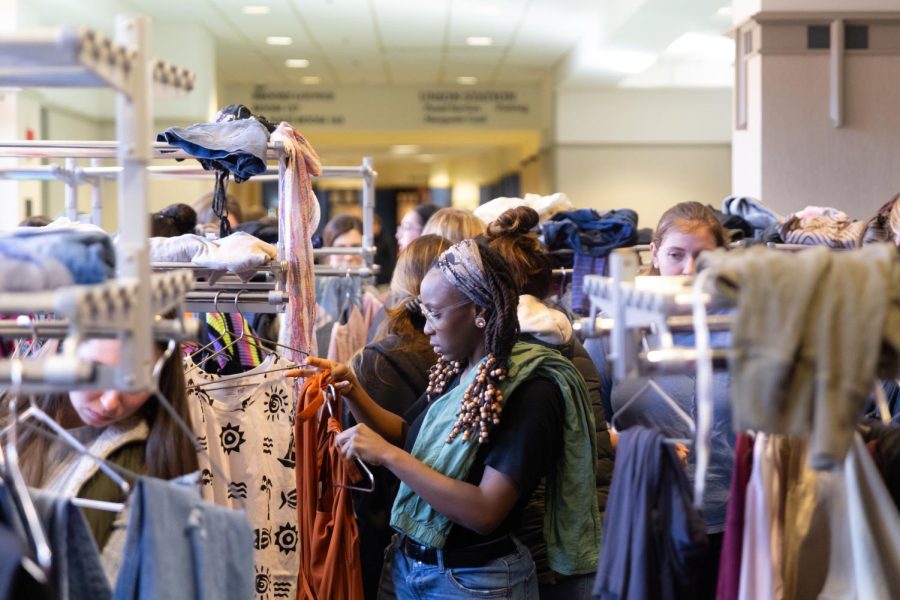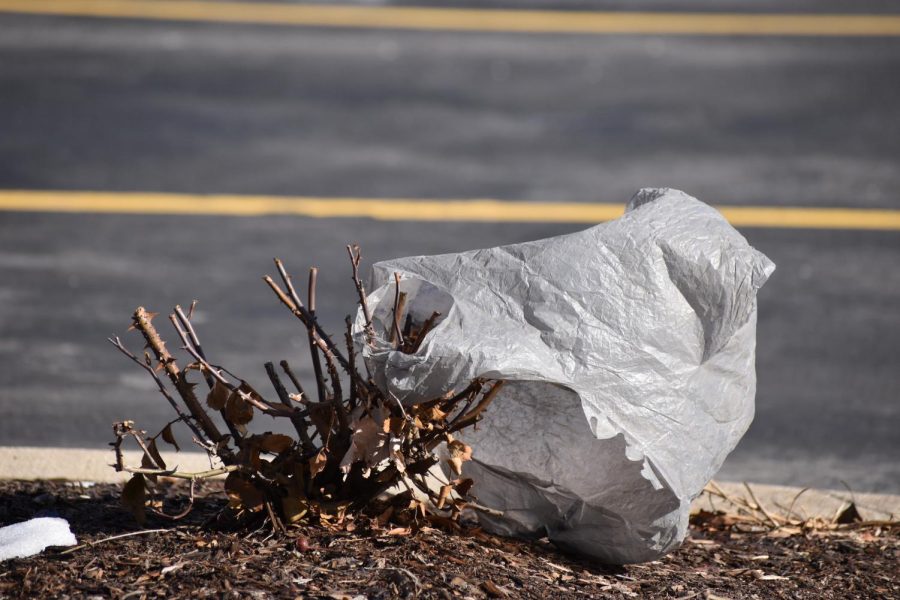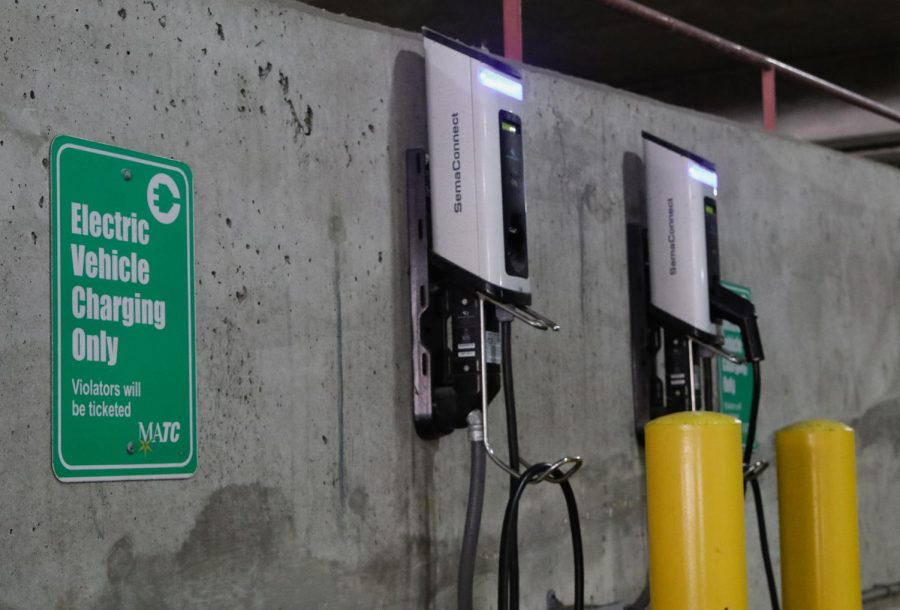With the pale sun of the spring semester comes melodic birdsong, floral apparel and warmth that exposes accumulated waste trapped beneath the snow. Ashley Tan, a first-year in the College of Engineering, traipses through trash when she walks to class.
“When the snow melted, there were a lot of disposable masks on the street,” Tan said. “I live by Straz Tower, and whenever I walk across the bridge, I feel like I always see some type of trash. I try to pick it up when I see it.”
In 2020 and the first six weeks of 2021, the Milwaukee Department of Neighborhood Services investigated 16,325 garbage violations and orders, according to WTMJ-TV Milwaukee. At Marquette, despite attendance challenges faced by clubs on campus due to COVID-19, organizations like Students for an Environmentally Active Campus have continued to advocate for sustainability and cleaner streets.
“Sustainability has come to the forefront of a lot of people’s minds,” Aaron Sabal, a senior in the College of Business Administration and president of SEAC said. “We’ve seen a lot more public discourse and discussion about it, which is encouraging.”
SEAC is a club for students to participate in both learning opportunities and excursions around Marquette and Milwaukee. Three other student-led organizations on campus — Ocean Conservation Club, Global Water Brigade and Food Recovery Network — cite climate justice and sustainability in their club descriptions. Fossil Free Marquette, founded in the fall semester of 2019 and not yet listed on the Marquette website, is a campaign petitioning the administration to divest the endowment from the fossil fuel industry.
“Throughout the past year, the pandemic helped a lot of people see that these environmental issues are interconnected,” Joseph Miscimarra, senior in the College of Arts & Sciences, vice president of SEAC and co-founder of Fossil Free Marquette, said.
Miscimarra noted the linkages between racism and environmental inequities, especially with air pollution and a virus that attacks the respiratory system. COVID-19 was the third-leading cause of death in the United States in 2020, according to provisional mortality data published by the Center for Disease Control and Prevention (CDC) March 31. Communities of color were disproportionately impacted by the pandemic; deaths related to COVID-19 were higher among American Indian and Alaska Natives, Hispanics, Blacks and Native Hawaiian and Pacific Islander persons than whites, according to the report. Unequal and chronic exposure in communities of color to environmental health hazards such as air pollution — which can contribute to or worsen diabetes, heart diseases, asthma and lung cancer — overlap with the risk factors for severe COVID-19, according to preliminary research from the Public Health Institute (PHI) and the University of California San Francisco (UCSF).
These are deeply rooted and systemic patterns in the nation and on campus. Litter is just a physical manifestation of one part of those problems.
SEAC campus clean-ups are held each month, weather permitting, to dispose of litter like fast food wrappers and cigarette cartons. SEAC held their first campus clean-up of the year March 21.
“It was good timing, because that was just after the snow melted, so there was a ton of trash lying around,” Miscimarra said. “We got at least ten full bags of garbage, and it’s maybe just a small dent in the problem, but it can’t hurt.”
Mia Cinquini, a sophomore in the College of Nursing and secretary of SEAC, said in-person activities like the clean-ups have been the most effective in boosting club engagement.
“It’s kind of hard to host Zoom meetings — like no one really wants to have another one in the day. There are still people that do show up, just not as many as we would like,” Cinquini said.
Weekly virtual meetings for SEAC on Wednesday nights typically attract the executive board and about three club members, Cinquini said. That number jumps up to ten when they host socially distanced, in-person meetings outdoors. The recent clean-up, with 20 participants, has been the club’s best turnout so far this year.
Tan is not a current member of SEAC, but she said she hopes to get involved next semester once campus is more open and meetings can be in-person. She said she also has plans to organize her own eco-friendly group.
“It would be easy to text your friends, like, ‘Hey, I’m gonna go walk around and clean up trash today. Let’s grab a bunch of trash bags,’ or something like that,” Tan said. “If it’s something you want to do, and you want to see campus look cleaner, then this is a great option to help the environment one step at a time.”
Most commonly, campus clean-up participants and students like Tan who work independently will spot crushed cans, face masks and take-out containers. The latter two items, Tan said, are largely unavoidable due to the pandemic, but they should be disposed of properly.
“Obviously the masks are a necessity, but reusable masks can help the environment out,” Tan said.
Cinquini said she is glad to see some more eat-in options at campus dining halls now, where students can eat on reusable plates. But in the fall semester, “the garbage cans were overflowing” in Wells residence hall, where she lives. To-go containers are often not disposed of by students in the proper bins labelled “recycling,” Cinquini said.
“Every single day it was really bad,” Cinquini said. “It was absolutely insane how many containers there all were.”
The crushed cans, though, tell a slightly different story.
“They were a majority of what we picked up,” Miriam Schwabe, a sophomore in the College of Arts & Sciences and co-founder of Fossil Free Marquette, said in an email. “If you’re partying outside, please recycle those cans!”
Clean-up participants largely stick to blocks with off-campus housing, where several houses are notorious with SEAC for not disposing of party waste.
Kilbourne Ave. and State Street are also congested with garbage, Sabal said. The shrubbery surrounding one dumpster on the street is sullied when there’s an overflow of trash and city sanitation has not collected that day.
“There’s one bush that’s just completely full of trash, and it’s really gross,” Sabal said.
Even though the trash is gross, the clean-ups themselves are productive ways to become more involved with environmentalism and the city, Sabal said.
“We’re going to do a beach clean-up,” Sabal said. “They’re all a lot of fun, and it’s a good way to get outdoors.”
Efforts for an environmentally-conscious campus are helped in part by the new sustainability and energy coordinator Chelsea Malacara, who has been in the position since September 2020. Former sustainability coordinator Brent Ribble left the university before the 2019 fall semester and the position went unfilled until Malacara.
“One of my top priorities is really connecting folks across campus, breaking down silos to create synergies that will eventually make sustainability an inherent part of our culture here,” Malcara said in an email. A synergy is a collaboration between two or more organizations whose combined efforts are greater than the sum of their individual efforts.
Malacara praised the clean-up efforts by SEAC, also noting that the grounds team at Marquette is “committed to campus beautification and do their fair share of litter clean up throughout the year.”
In terms of broader sustainability initiatives, Malacara pointed to her current work on Marquette’s Sustainability Tracking, Assessment & Rating System report. The report is “a transparent, self-reporting framework for colleges and universities to measure their sustainability performance across operations, academics, engagement, planning, administration and leadership,” Malacara said in an email. It will be completed this summer. A main sustainability goal is to reduce CO2 emissions by 25% by 2025, Malacara said.
Following the completion of the STARS report, Malacara wants to organize a committee, including staff and students across campus, to develop a sustainability plan for Marquette.
Regardless of political ideology, younger adults aged 18-38 are the among the most climate-conscious generations when it comes to environmental activism and policy, according to the Yale Program on Climate Change Communication. In the fall semester of 2020, 33 Marquette undergraduate students had declared interdisciplinary environmental studies as their major, and six had declared it as a minor, as indicated by program enrollment statistics.
From climate lunch talks to internship offerings, members of SEAC said Malacara has provided “wonderful learning opportunities” for the club and the Marquette community as a whole. Malacara considers sustainability efforts beyond the usual suspects of trash and recycling, Miscimarra said. He offered the 13th Street parking structure as an example, which keeps its lights on “all the time.”
“I could talk about (Malacara) all day. She’s amazing, and I honestly cannot think of a better person for the job,” Miscimarra said. “If you think about sustainability on campus … there’s a ton of other ways we need to holistically round out our efforts.”

